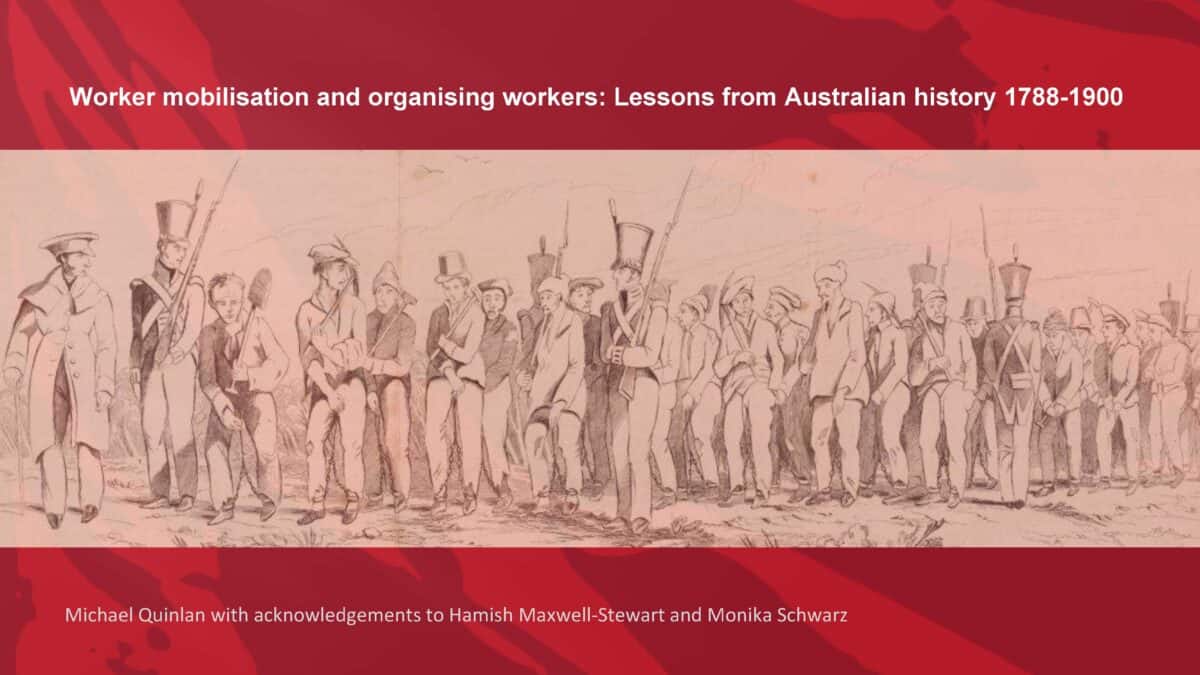Occupational health and safety (OHS) professionals, like anyone else, base their decisions and advice primarily on their living memory. This partly explains the trend of emphasising “lived experience” sometimes over history or research. But it is understandable that we trust experiences from people face-to-face over what we read or what Grandad sort-of remembers from his first job. But history is important, especially when new sources of history are being unearthed or old sources are re-evaluated.
Recently, Michael Quinlan has been working on the recently digitised records of Australia in convict times and the 1800s. This research, conducted with colleagues, reveals new perspectives on industrial relations and worker health and safety. Recently, he presented to the Australian Council of Trade Unions (ACTU) on Moibilising and Organising Workers – Lessons from Australian History 1788-1900. (I know, but bear with me).

